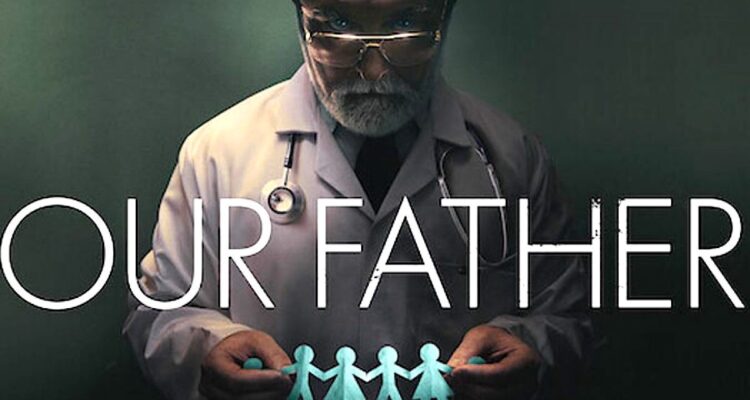The story of former fertility doctor Donald Cline is horrifying in its own right. Having used his own sperm to inseminate countless women, all the while lying about the origins of the sperm for decades — often by claiming that it came from medical residents at the nearby hospital — Cline’s story became national news around 2019, when the ever-growing number of his biological children sought punishment for what they claimed was sexual assault against their mothers.
READ MORE: The Best Documentaries Of The Decade [2010s]
Lucie Jourdan’s new Netflix documentary about Cline, “Our Father” is both late to the game, coming some three years after the events were in the public consciousness, and has little new to say about the Doctor. While the film may prioritize the victims’ voices, it mainly dwells on the salaciousness of the story. Using cringeworthy staged reenactments, and a rolling sibling count, in an effort to elicit tension, “Our Father” is less interested in unpacking the psychological ramifications of Cline’s decision. Instead, Jourdan treats Cline’s behavior with the same type of car-crash voyeurism that would be at home in a National Enquirer article
At the center of the narrative is Jacoba Ballard, one of Cline’s biological children. After becoming curious about her donor father, she took a 23andMe test, soon discovering that she had multiple half-siblings. Very quickly, she realized that these siblings all had connections with Cline and could trace their biological history back to his own family. As more and more siblings took 23andMe tests, she decided to investigate further, enlisting Angela Ganote at Fox59 to unpack just how Cline went about using his own sperm.
Jourdan oscillates between these talking heads — Ballard, Ganote, and many of the other siblings — with recreations of Cline’s conversations as the mounting evidence begins to pile up. But, in a profoundly odd formal choice, Cline is the only one played by an actor (Keith Boyle), all the others play themselves in these staged recreations. That choice creates a truly odd viewing experience as the fictionalized Cline interacts with real-life counterparts.
While the title “Our Father” might imply a deeper dive into Cline’s religious obsessions, the film mainly dwells too often on the cruder aspects of Cline’s story. Only a few minutes are spent on his distorted view of Jeremiah 1:5, which he often cited as reasoning for using his own sperm, as well as the possibility that he was part of the Quiverfull Movement — a radical Christian position that encourages mass procreation. But, mainly “Our Father” relishes in recounting, multiple times, in compulsive detail, how he went about masturbating immediately before going into the examining rooms to perform the inseminations, all as a horror-tinged score plays out over the grotesque ritual.
What is lost in this story are the ramifications on his victims’ psyches. We get a number of interviews with Ballard, and others, but they are often used to contextualize or provide some expository detail about Cline — how he went about inseminating, how he reacted when confronted, the legal consequences, etc. We never get a full sense of what these people went through after finding out that Cline was their biological father, mainly because Jourdan doesn’t seem particularly interested in unpacking these issues, or giving enough narrative space to explore the psychological toll.
Instead, “Our Father” lurches forward by constantly upping the sibling count, as we move from 10 half-siblings to 20, and even higher. Most of these people aren’t given anything other than that identifying number, with Jourdan seemingly banking on the viewer rhetorically asking ‘how high can this number go’ as an enticing reason to keep watching. It isn’t. A quick Google search can show you the ramifications of Cline’s inseminations, and save you about an hour and a half in the process. [D]

